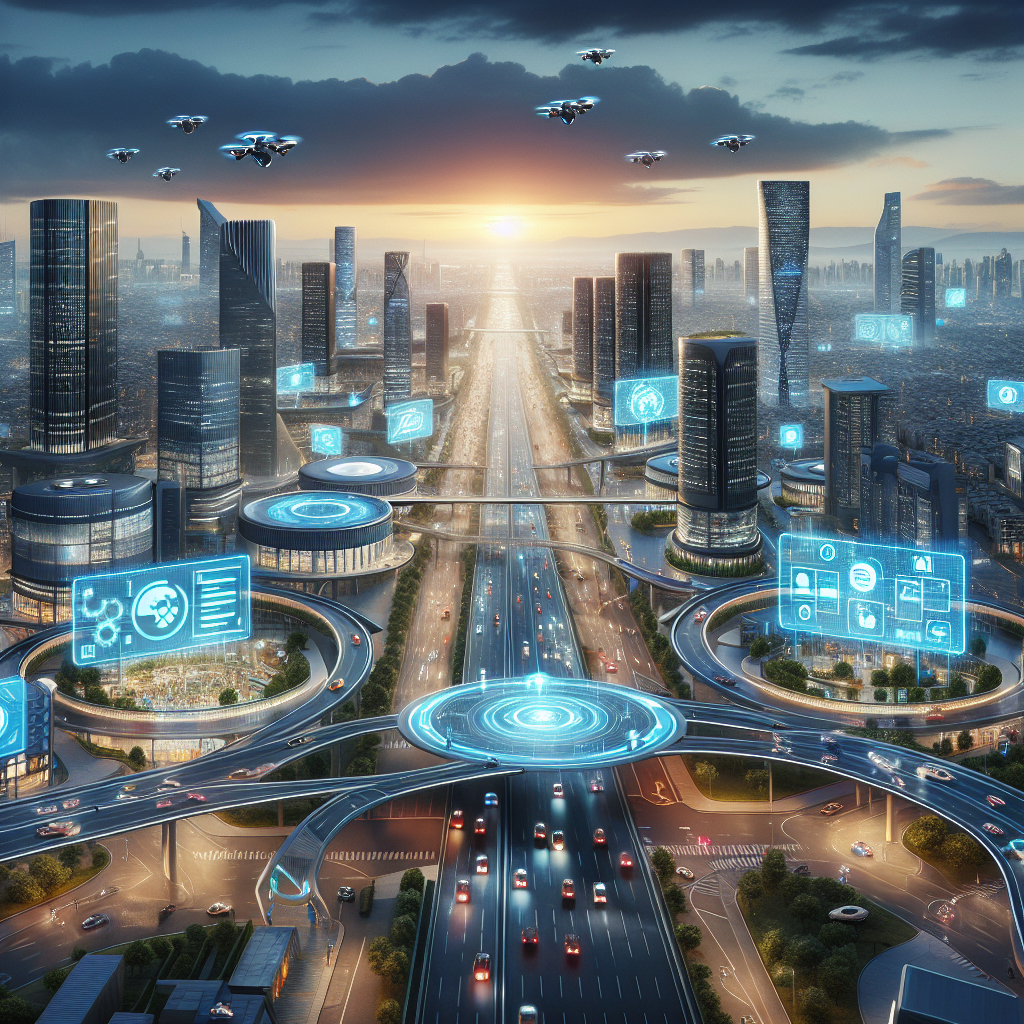In recent years, the concept of smart cities has gained significant traction as urban populations continue to grow, and the need for sustainable, efficient, and technologically advanced solutions becomes increasingly apparent. One key component of smart cities is the integration of artificial intelligence (AI) platforms, which have the potential to revolutionize the way cities are managed and operated. In this article, we will explore the integration of AI platforms in smart cities, the benefits they offer, and some of the challenges that come with their implementation.
AI platforms in smart cities refer to the use of advanced algorithms and machine learning techniques to analyze data, automate processes, and make predictions that can help city officials make informed decisions and improve the quality of life for residents. These platforms can be used in a variety of ways, such as optimizing traffic flow, managing energy consumption, predicting and preventing crime, and improving public services.
One of the key benefits of integrating AI platforms in smart cities is the ability to make data-driven decisions in real-time. By analyzing vast amounts of data from sensors, cameras, and other sources, AI platforms can provide city officials with valuable insights that can help them address issues proactively and efficiently. For example, AI algorithms can analyze traffic patterns and make adjustments to traffic signals to reduce congestion, or predict when maintenance is needed on infrastructure to prevent breakdowns.
Another benefit of AI platforms in smart cities is the potential to improve public safety and security. By analyzing data from surveillance cameras, social media, and other sources, AI algorithms can help law enforcement agencies identify potential threats and respond more effectively to emergencies. For example, AI platforms can be used to detect anomalies in crowd behavior or identify individuals who may be involved in criminal activity.
Additionally, AI platforms can help cities reduce their environmental impact and improve sustainability. By analyzing energy consumption data, for example, AI algorithms can help cities optimize their energy usage, reduce waste, and lower greenhouse gas emissions. Similarly, AI platforms can be used to optimize water usage, manage waste disposal, and promote sustainable transportation options.
Despite the numerous benefits of integrating AI platforms in smart cities, there are also challenges that come with their implementation. One of the main challenges is ensuring that the data used by AI algorithms is accurate, reliable, and secure. Cities must invest in robust data collection and storage systems, as well as implement strict data privacy and security measures to protect sensitive information.
Another challenge is ensuring that AI platforms are transparent and accountable. City officials must be able to understand how AI algorithms make decisions and be able to explain those decisions to residents. Additionally, there must be mechanisms in place to address bias and discrimination in AI algorithms, as well as to ensure that they are used ethically and responsibly.
In conclusion, the integration of AI platforms in smart cities has the potential to revolutionize the way cities are managed and operated. By leveraging the power of AI algorithms, cities can make data-driven decisions in real-time, improve public safety and security, reduce their environmental impact, and enhance the quality of life for residents. However, the implementation of AI platforms in smart cities comes with challenges that must be addressed, such as ensuring data accuracy and security, transparency and accountability in decision-making, and ethical and responsible use of AI algorithms. With careful planning and investment, cities can harness the power of AI to create more sustainable, efficient, and livable urban environments.
FAQs:
Q: How can AI platforms help improve traffic flow in smart cities?
A: AI platforms can analyze traffic patterns in real-time and make adjustments to traffic signals to reduce congestion and improve traffic flow. By optimizing the timing of traffic signals based on current conditions, AI algorithms can help reduce travel times, lower emissions, and improve overall traffic efficiency.
Q: Are there privacy concerns associated with the use of AI platforms in smart cities?
A: Yes, there are privacy concerns associated with the use of AI platforms in smart cities. Cities must ensure that data collected by AI algorithms is protected and used responsibly. This includes implementing strict data privacy and security measures, as well as being transparent about how data is collected, stored, and used.
Q: How can AI platforms help improve public safety in smart cities?
A: AI platforms can help improve public safety in smart cities by analyzing data from surveillance cameras, social media, and other sources to identify potential threats and respond more effectively to emergencies. By detecting anomalies in crowd behavior, identifying individuals involved in criminal activity, and predicting crime hotspots, AI algorithms can help law enforcement agencies prevent and respond to crime more efficiently.

